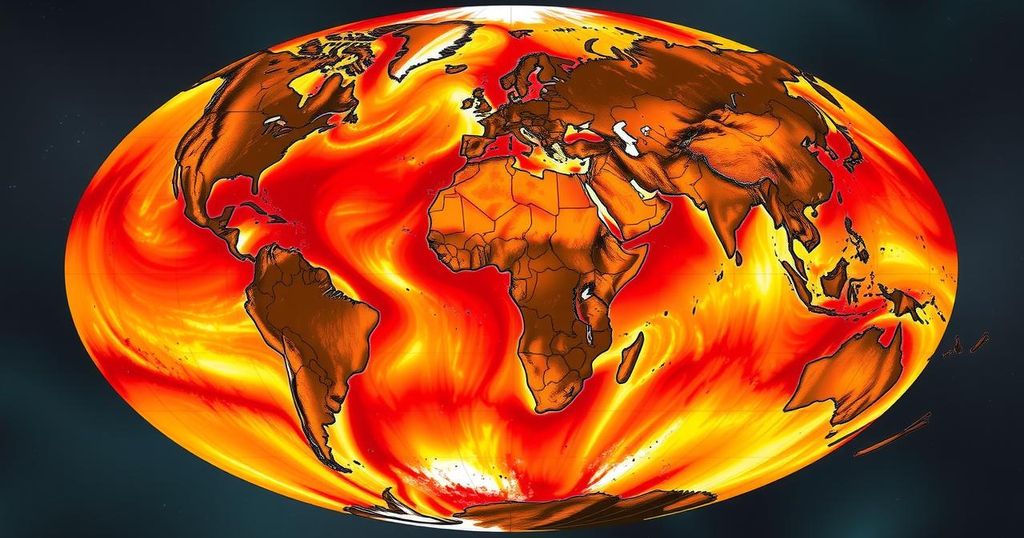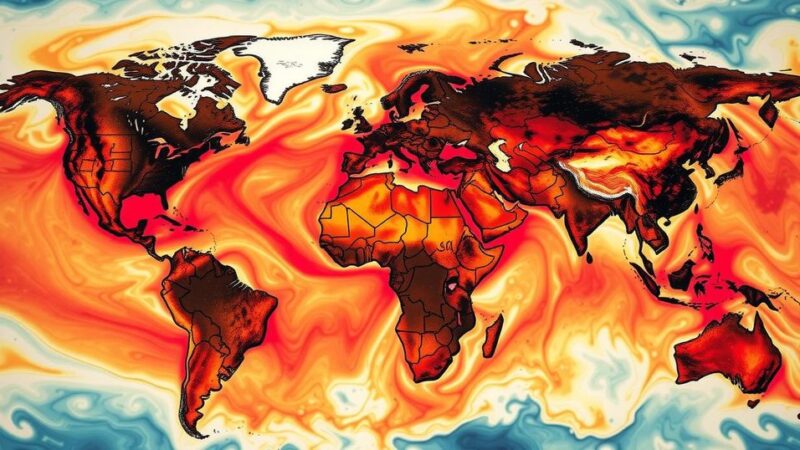2024 has been confirmed as the warmest year on record globally, with average temperatures exceeding 1.5 degrees Celsius above pre-industrial levels. This significant rise, coupled with increased atmospheric water vapor, has resulted in extreme weather conditions. Climate scientists attribute these changes mainly to human-induced climate change. Immediate action is deemed crucial to alter the future trajectory of global climate.
The Copernicus Climate Change Service (C3S) announced on January 10, 2024, that this year is officially the warmest on record globally since measurements began in 1850. Notably, it is also the first year when the global average temperature surpassed 1.5 degrees Celsius above pre-industrial levels—a critical target set by the Paris Agreement. The average global temperature for 2024 reached 15.1 degrees Celsius, marking an increase of 0.12 degrees Celsius compared to the previous record holder, 2023.
Copernicus further disclosed that the two-year average for 2023 and 2024 exceeded the 1.5 degrees Celsius threshold, raising concerns regarding global warming. The Paris Agreement aims to limit temperature rise to well below 2 degrees Celsius, aspiring to keep it at 1.5 degrees Celsius by the end of the century. Although this increase does not signify a breach of the Agreement’s long-term limits, it highlights unprecedented temperature rises that humanity has never faced before.
In 2024, the atmospheric water vapor levels also reached record highs, approximately 5 percent higher than the 1991-2020 average. This, in conjunction with high global temperatures, resulted in severe heatwaves and heavy rainfall events, impacting millions adversely. C3S climate scientist Julien Nicolas primarily attributes the extreme temperatures to human-induced climate change, alongside naturally occurring phenomena such as the El Niño Southern Oscillation.
Carlo Buontempo, Director of C3S, accentuated the pressing need for immediate global action, stating, “the future is in our hands — swift and decisive action can still alter the trajectory of our future climate.”
The data provided by the Copernicus Climate Change Service, funded by the European Union, comes against the backdrop of increasing global concerns regarding climate change and its ramifications. The year 2024 is pivotal in demonstrating mankind’s impact on climate, particularly against established goals such as those outlined in the Paris Agreement, which seeks to limit the rise in global temperatures to avoid catastrophic environmental changes. Understanding the implications of these temperature increases, particularly as they relate to atmospheric conditions and weather patterns, is crucial for formulating effective global climate policy moving forward.
In summation, the confirmation that 2024 is the warmest year on record underscores the urgent need for global action against climate change. The surpassing of the 1.5 degrees Celsius threshold raises alarms about the future climate trajectory, reinforcing the necessity for swift and decisive action as emphasized by climate experts. Without immediate intervention, the ongoing rise in global temperatures and their associated impacts will continue to present significant challenges for humanity.
Original Source: www.socialnews.xyz







